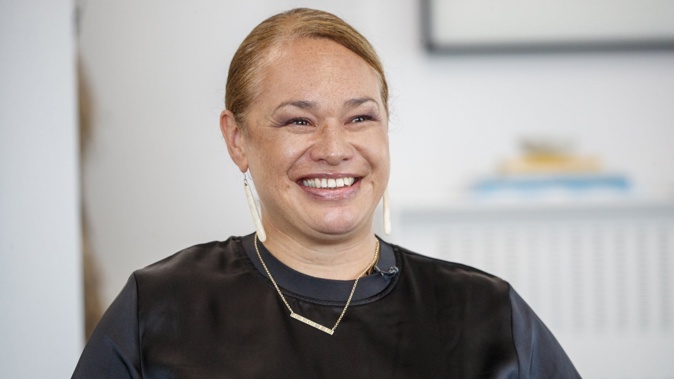PHOTO: It’s easy to be mystified by the real estate jargon used when buying, selling, or renting a property.
Buying, selling and renting can be daunting — whether you’re a pro or a first-home buyer – and it’s often made harder by confusing real estate jargon.
Beyond the property and home loan industry lingo, agent buzzwords add another layer of complexity by forcing you to read between the lines to decipher them.
To make things easier, we asked the experts for their definitions of all the frequently used industry terms you need to know.
Wakelin Property Advisory director Jarrod McCabe, Infolio Property Advisors managing director Lauren Staley, Ray White Victoria & Tasmania chief executive Stephen Dullens and Barry Plant executive director Mike McCarthy helped us break down the buzzwords
A TO Z OF REAL ESTATE LINGO
Appraisal – Also known as a valuation, this is prepared by a real estate agent and used as a guide to pricing a property for sale or for rent.
Body corporate – Also known as an owner’s corporation, this is the group responsible for managing the common property (shared driveways, carparks, lifts, corridors, gardens, recreational areas like pools, etc) of strata-titled properties (apartments, units, townhouses, etc).
Bridging finance – If a buyer has recently sold their property and is waiting for proceeds to clear, they can apply for bridging finance to put a deposit on a new home.
Buyer’s advocate – A real estate professional who helps clients buy the right property at the lowest possible price.
Caveat – A notification on the title declaring a party other than the owner may have an interest in the property.
Commission – The fee or payment made to an agent for services rendered, such as selling a property.

Infolio Property Advisors managing director Lauren Staley.
Conveyancer – A licensed professional who ensures all legal requirements are met when buying a property, and helps with the settlement and title transfer process.
EOI – Expressions of interest. Generally a private sale campaign where agents ask buyers to place their interest and offers by a certain date.
Guarantor – The person who agrees to pay your debt if you falter on the mortgage repayment.
Highest and best – Where an agent says there is one opportunity to make your “highest and best offer” to try to secure a property.
Home equity – The portion of your property you own that does not belong to the bank. As you pay off your mortgage, your equity increases.
LMI – Lender’s mortgage insurance. A one-off insurance fee that is payable by those who lodge a deposit below 20 per cent of the property value. It gives banks security when lending to high-risk borrowers.
LVI – A loan-to-value ratio is the size of your home loan, expressed as a percentage of the value of the property it was used to buy.
Off market – When a property is for sale, but it has not officially been advertised. Most off-market purchases occur via buyer’s advocates or direct contact with agents.
On the market – When the bidding at an auction has reached the vendor’s reserve price and will be sold to the highest bidder.
Pass in – If auction bidding fails to reach the vendor’s reserve price, the property is passed in for further negotiation. The highest bidder usually has first go at negotiating.
Pre-approval – This means the bank has given you conditional approval of your home loan and will indicate how much you can spend when you go to auction.
Reserve – The minimum price the vendor will sell for at auction. It can be amended during bidding.
Settlement date – The date the sale of the property will be finalised between buyer and seller.
STCA – Subject to council approval. This signals the buyer will need council approval before carrying out a demolition or renovation.
Turn-key property – A property that is ready to be moved straight into, with no further works required.
Unconditional offer – Not subject to any other conditions such as building, pest inspection or financing. All auction sales are unconditional.
Under offer – When an offer on a property has been accepted and the vendor and buyers are in the settlement stage of the transaction.
Under the hammer – This means a property is going to be sold during the auction process, rather than passing in and selling afterwards.
Vendor bid – A bid placed by the auctioneer on behalf of the vendor to set a baseline for future bids.
BEHIND THE BUZZWORDS
Blank canvas – It’s stuffed (Lauren Staley)
City glimpses – You can see the city if you stand on a ladder and really squint, it is somewhere in the distance (Jarrod McCabe)
Compact – Tiny/minuscule (LS)
Cosy – Small (JM)
Cute – Awful (LS)
Functional kitchen – Original kitchen that needs to be fully renovated (JM)
Lacking natural light – Dark and horrible (LS)
Original – Older condition (Mike McCarthy)
Ripe for renovation – The property is only worth its land value (LS)
Versatile floorplan – Quite often a description of a floorplan that is a bit of a dog’s breakfast and will need to be fully renovated (JM)
Walking distance – This could mean a five-minute walk, but it could also mean 20 minutes (MM)
READ MORE VIA NEWS.COM.AU
MOST POPULAR
 How KFC car park deal brought down rising real estate star | AUSTRALIA
How KFC car park deal brought down rising real estate star | AUSTRALIA Wage subsidies: Real estate agents claim more than $1m during lockdown
Wage subsidies: Real estate agents claim more than $1m during lockdown Economists pick when the ‘turbo-charged’ New Zealand housing market will stall
Economists pick when the ‘turbo-charged’ New Zealand housing market will stall Abandoned land for sale
Abandoned land for sale AUSTRALIA: Chilling prediction house prices could fall by a staggering $200,000
AUSTRALIA: Chilling prediction house prices could fall by a staggering $200,000 High-ranking cop (now real estate agent) quit amid inquiry into bullying, inappropriate relationships
High-ranking cop (now real estate agent) quit amid inquiry into bullying, inappropriate relationships Property crash on the Cards? | WATCH
Property crash on the Cards? | WATCH New supermarkets on the way? Entrepreneurs planning NZ’s third supermarket chain
New supermarkets on the way? Entrepreneurs planning NZ’s third supermarket chain Two decade TAX exemption for new builds
Two decade TAX exemption for new builds Asian shares decline as China worries darken sentiment
Asian shares decline as China worries darken sentiment











